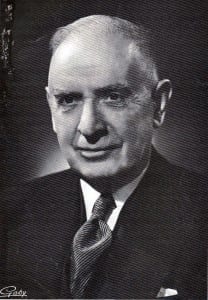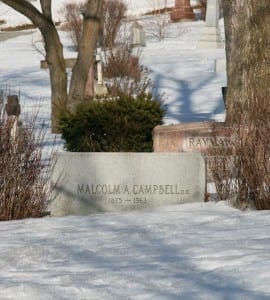Malcolm Campbell, upon encountering Malcolm Campbell, remarked, “And don’t you ever forget it.”
A previous post about Malcolm Campbell is entitled:
Portrait by Gaby of Malcolm A. Campbell features dramatic low key lighting
Robin Hallam has recently added the following comment to the above-noted post, of June 10, 2014; I’ve written the post you are now reading in order to bring your attention to the comment:
Recent comment from Robin Hallam:
When Malcolm Campbell was shaking the hand of each student and asking their name as described above, he eventually came to a student who replied “Malcolm Campbell”, to which the reverend gentleman admonished “and don’t you ever forget it”. The student was in fact his grandson.
[End of comment]
Click on the photos to enlarge them; click again to enlarge them further



Kathryn Mcintosh reports on Facebook:
I was baptized by the Rev. Malcolm Campbell and my parents were married by him – that was in NDG, So it was really strange to go to a high school named after him in Cartierville!
Most interesting, Kathryn. Sounds like the Rev. Malcolm Campbell was a busy man about town!
Malcolm Campbell made a great impression on the students when he shook hands with all of them.
His church, now a condo, was near Fletcher’s Field in a district that was, in his early preaching days, quite lush. That would have been over a century ago. That’s why St. James United on St. Catherine street was built near there and, a little to the west, St. Andrew and St. Paul, and Erskine-American. But the English moved shortly after WW1, leaving behind churches that had become a liability.
He had two sons. One was Fraser Campbell, a man of no conspicuous distinction. But they made him principal of Parkdale school very, very early in his teaching career because his father was chairman of the school board. The other son I met only once, when I was the speaker at the ceremony for the closing of the church, and its conversion into condos. By then, the district was in terminal decline.
Reverend Campbell was, perhaps excessively, fond of whiskey which he dabbled in from early morning until bedtime. He had been doing so in the MCHS office that day. And I well remember the screams of secretaries as he pinched them.
The school board, by the way, was dominated by appointees of the wealthier anglos. That was actually lucky for us because the wealthier anglos had strong representation with Presbyterianism which had been the creator of public schooling back in Scotland. That’s why Scotland produced so many fine scholars and inventors in the 18th and 19th centuries.
The Catholic system (or the French part of it) was dominated by the French wealthy who had none of that tradition. Their board was dominated by people who sent their own children to excellent private schools, but sent the lower classes to schools that were underfunded and, very, very inferior. The purpose, of course, was to cut down on the need for the wealthier French to pay taxes.
Graeme
Your backstory, Graeme, is helpful. I would be interested in stories from other sources as well.
The story about drinking brings to mind a recent post regarding a study of drinking at Toronto City Hall in the recent past: John Filion has produced a fair and balanced study regarding a former Toronto mayor.
Your reference to optimal conditions for scholars and inventors brings to mind a study entitled How to Fly a Horse (2015), which I’ve highlighted at a previous post:
We seek recollections about Petit Bois Franc in relation to an old farmers road. Also: How to Fly a Horse (2015)
As well, your reference to a church-to-condo conversion in Montreal is of much interest to me.
For over a year I’ve been following a story related to the conversion of Wesley Mimico United Church in Toronto from a church into a “Life-Lease” residence for seniors.
Some of the posts (see link in previous sentence for a list of them) include:
Giving new meaning to religious conversion – Jason Hackworth and Erin Gullikson (2013)
Many case studies document the adaptive resuse of historically significant buildings
The outcome of the Wesley Mimico redevelopment story will depend upon negotiations related to the Ontario Heritage Act